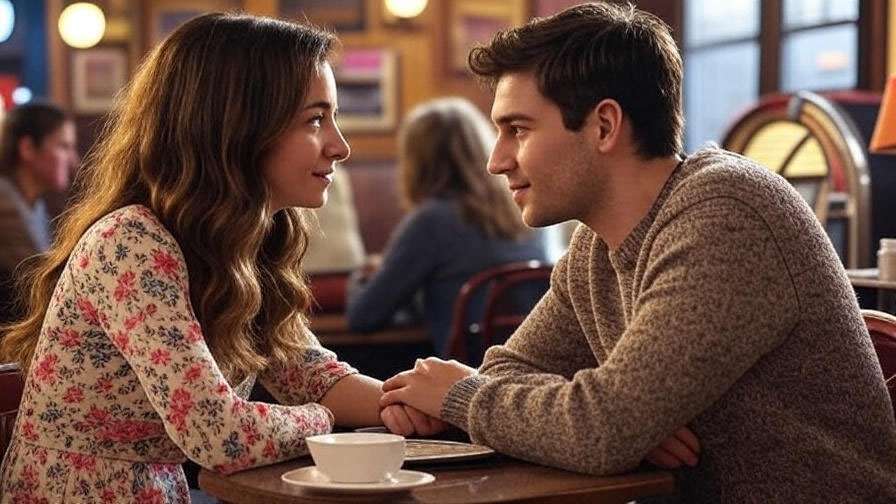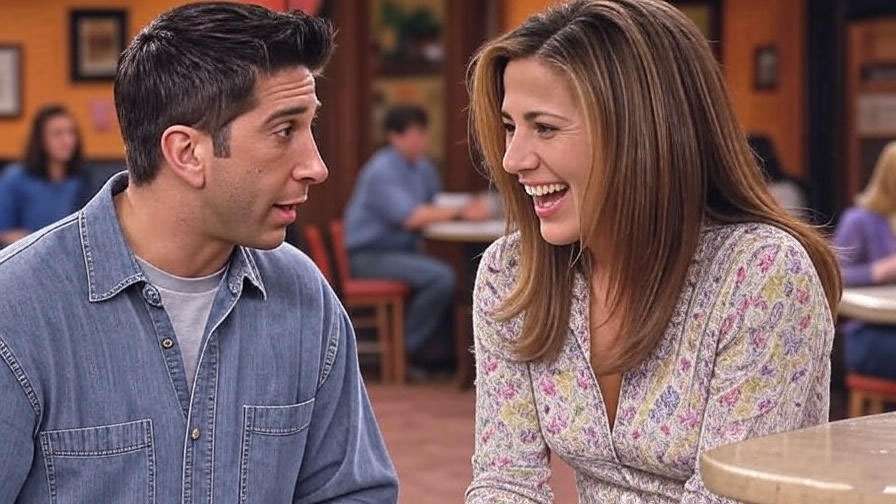Picture this: it’s a rainy Saturday afternoon, and you’re curled up on the couch, the familiar theme song “I’ll Be There for You” blaring as Ross, Rachel, and the gang navigate life’s ups and downs in their cozy New York apartments. For millions, Friends isn’t just a TV show—it’s a time machine to the 90s, a warm hug of nostalgia that never fades. Enter Lynn Ross, a pop culture commentator whose insights into Friends TV nostalgia have captivated fans, offering fresh perspectives on why this sitcom remains a cultural touchstone. This article dives deep into Ross’s expertise, exploring how her commentary enhances our love for Friends, solves the craving for meaningful nostalgia, and keeps the show’s legacy alive for old and new fans alike.
Friends, which aired from 1994 to 2004, follows six twenty-somethings—Rachel Green, Ross Geller, Monica Geller, Chandler Bing, Joey Tribbiani, and Phoebe Buffay—as they navigate love, careers, and friendship in Manhattan. Its blend of humor, heart, and relatability has made it a global phenomenon, available on streaming platforms like Max and still drawing millions of viewers. Lynn Ross’s analyses, often shared through articles and social media, unpack the show’s timeless appeal, from its iconic moments to its emotional resonance. Whether you’re a lifelong fan or a Gen Z binger discovering Central Perk for the first time, this article will show you why Ross’s insights are a must-read for unlocking the full magic of Friends nostalgia.
Who Is Lynn Ross and Why Does She Matter to Friends Fans?
Lynn Ross’s Background in TV Commentary
Lynn Ross has emerged as a respected voice in pop culture analysis, particularly for her deep dives into 90s sitcoms like Friends. While specific details about her professional background are less documented, her work as a commentator shines through her engaging articles and social media presence, where she dissects the cultural and emotional layers of television classics. Ross’s expertise lies in her ability to connect Friends’ themes—friendship, love, and personal growth—to universal human experiences, making her insights resonate with a broad audience. Her commentary often appears on platforms like X, where she engages with fans, sparking discussions about why Friends endures as a nostalgic masterpiece.
Her authority stems from her nuanced understanding of the show’s context, from its 90s cultural backdrop to its modern-day relevance. By blending historical analysis with emotional intelligence, Ross offers a perspective that feels both scholarly and accessible. For example, she’s been praised for highlighting how Friends captures the “aspirational yet relatable” vibe of urban life, a point that resonates with fans who see the show as both an escape and a mirror of their own friendships.
Her Connection to Friends Nostalgia
Ross’s connection to Friends nostalgia is rooted in her ability to articulate why the show feels like “home” for so many. She emphasizes its core themes: the comfort of chosen family, the humor in life’s chaos, and the bittersweet journey of growing up. In one notable X post, Ross described Friends as “a love letter to the 90s, where coffee shops were sanctuaries and friendships were lifelines.” This sentiment captures the show’s essence, resonating with fans who rewatch episodes to relive simpler times. Her insights often focus on specific moments—like Ross Geller’s “pivot” outburst or Phoebe’s “Smelly Cat”—that have become cultural touchstones, reinforcing why these scenes stick with us decades later.
Ross’s work also bridges generational gaps. For older fans, she taps into memories of watching Friends during its original NBC run, while for younger viewers, she highlights how the show’s streaming availability on platforms like Max makes it a fresh discovery. Her commentary solves a key problem for fans: how to articulate the emotional pull of Friends beyond “it’s funny.” By framing the show as a nostalgic anchor, Ross helps fans understand why they return to it during tough times, like the 2020 pandemic when viewership surged.
Expert Insight: David Crane, one of Friends’ creators, once noted in an interview that the show’s success lies in its “emotional truth.” Ross’s analyses echo this, emphasizing how the characters’ flaws and triumphs mirror our own, making her a trusted guide for fans seeking deeper meaning in their favorite sitcom.

The Timeless Appeal of Friends: Why It Still Captivates Audiences
Nostalgia as a Cultural Driver
Nostalgia is a powerful force, and Friends taps into it like few other shows. Psychologically, nostalgia provides comfort by reconnecting us with past joys, especially during uncertain times. A 2021 study from the Journal of Personality and Social Psychology found that nostalgic media, like Friends, boosts mood and fosters a sense of belonging. Ross’s commentary often highlights this, noting how the show’s cozy settings—Monica’s purple apartment, Central Perk’s warm lighting—create a “time capsule to simpler times.” These elements evoke a pre-digital era when life felt less fragmented, making Friends a go-to for fans craving emotional security.
The show’s universal themes amplify this effect. Friendship, love, and the struggle to find one’s place in the world are timeless, resonating across generations. Ross often points out how Friends balances humor with heartfelt moments, like Chandler’s proposal to Monica or Rachel’s decision to stay with Ross in the finale. These scenes, she argues, make the show a “nostalgia-drenched therapy” that soothes modern anxieties.
Friends in the Streaming Era
The rise of streaming has supercharged Friends’ longevity. Available on Max, the show consistently ranks among the top-streamed series, with Nielsen reporting over 20 billion minutes watched in 2020 alone. Ross’s insights highlight how streaming allows new generations to discover Friends, often through binge-watching marathons. She notes that the show’s episodic structure—self-contained yet building toward larger arcs—makes it perfect for streaming, where fans can dip in and out without losing the emotional thread.
Ross also emphasizes the show’s accessibility. Unlike many 90s sitcoms that feel dated, Friends’ clean production and sharp writing keep it fresh. Its availability on platforms like Amazon Video and Max ensures fans can relive iconic moments anytime, from Ross’s “Unagi” misunderstanding to Joey’s “How you doin’?” catchphrase. Ross’s commentary often points to these moments as “cultural glue,” uniting fans across ages and backgrounds.
Lynn Ross’s Take on Friends’ Enduring Charm
Ross’s analyses pinpoint why Friends remains a cultural juggernaut. She argues that its charm lies in its balance of escapism and relatability. The show’s idealized New York—where friends live steps away and jobs seem secondary to coffee shop hangouts—offers a fantasy that feels attainable. Yet, its characters’ flaws, like Ross’s insecurity or Rachel’s impulsiveness, ground it in reality. In a widely shared X post, Ross wrote, “Friends makes you laugh at life’s messiness while reminding you that your chosen family will always be there.” This duality, she argues, is why fans return to the show repeatedly.
She also highlights specific episodes that encapsulate this charm. For instance, “The One with the Embryos” showcases the group’s camaraderie through a hilarious quiz game, while “The One Where Everybody Finds Out” delivers emotional payoff with Chandler and Monica’s secret romance reveal. Ross’s commentary often uses these episodes to illustrate how Friends blends humor with heart, making it a nostalgic safe haven.

Key Themes in Friends That Fuel Nostalgia, According to Lynn Ross
The Power of Relatable Characters
Ross frequently emphasizes the relatability of Friends’ characters as a cornerstone of its nostalgic appeal. Each character reflects universal struggles: Rachel’s journey from spoiled runaway bride to career woman mirrors the quest for independence; Ross’s romantic missteps echo the vulnerability of love; Monica’s perfectionism speaks to those chasing control in chaos. Ross’s insights highlight how these arcs resonate, citing episodes like “The One Where Rachel Quits” as examples of growth through adversity.
For example, Ross Geller’s arc, despite his flaws, is a fan favorite for its emotional depth. His on-again, off-again romance with Rachel, culminating in their reunion in the finale, taps into the universal longing for closure. Ross notes that fans connect with his “goofy yet lovable” nature, as seen in moments like his iconic “pivot” scene when moving a couch. These relatable moments, she argues, make Friends a mirror for fans’ own lives.
Humor That Transcends Generations
The humor in Friends is another pillar of its nostalgia, and Ross’s commentary often dissects its timeless quality. From Chandler’s sarcastic quips to Phoebe’s quirky songs, the show’s comedy feels fresh even today. Ross highlights episodes like “The One with Ross’s Sandwich,” where his over-the-top meltdown over a stolen lunch becomes comedy gold. She notes that the show’s physical comedy, like Ross’s spray tan mishap, and its sharp dialogue, like Joey’s “Joey doesn’t share food!” resonate across generations.
A standout example is the “Unagi” scene, where Ross mistakenly believes “Unagi” means a state of total awareness, only to be hilariously corrected by Rachel and Phoebe. Ross’s analysis of this moment underscores its brilliance: “It’s Ross’s confidence in being wrong that makes it unforgettable,” she wrote on X, sparking fan discussions and memes. This humor, she argues, creates shared laughter that binds fans together.
The Idealized New York Lifestyle
Friends’ portrayal of New York City is a key nostalgic draw, and Ross’s commentary often explores this aspirational yet relatable setting. Monica’s spacious apartment and Central Perk’s cozy vibe create a fantasy of urban life where friends are always nearby. Ross notes that this idealized world—where financial struggles are glossed over—offers an escape from reality’s complexities. Yet, she argues, it’s grounded by authentic emotional moments, like the group’s support during Ross’s divorces or Rachel’s career struggles.
Critics often point out the show’s unrealistic elements, like the group’s ability to afford large apartments on modest incomes. Ross counters this by framing it as part of the show’s charm: “Friends isn’t about realism; it’s about dreaming of a life where your friends are your family.” This perspective helps fans embrace the show’s escapist appeal while appreciating its emotional truths.

How Lynn Ross Enhances Fans’ Connection to Friends
Her Analysis of Iconic Episodes
Ross’s deep dives into iconic Friends episodes amplify fans’ nostalgic experience. She often highlights episodes that blend humor and heart, such as:
- “The One with the Embryos”: Ross notes the quiz game’s hilarity—where the group bets on who knows each other best—reveals their deep bond, making it a fan favorite.
- “The One Where Everybody Finds Out”: She praises the episode’s emotional payoff when Chandler and Monica’s romance is revealed, calling it “a masterclass in sitcom storytelling.”
- “The One with Ross’s Sandwich”: Ross highlights how Ross’s meltdown over his stolen lunch showcases David Schwimmer’s comedic brilliance, resonating with fans who love his neurotic charm.
By analyzing these episodes, Ross helps fans see new layers, from character motivations to clever writing, deepening their appreciation.
Ross’s Role in Fan Communities
Lynn Ross’s work has sparked vibrant discussions in Friends fan communities, particularly on X and Reddit. Her posts, like one calling the “pivot” scene “the ultimate ode to Ross’s lovable frustration,” have inspired thousands of retweets and replies, with fans sharing their own favorite moments. She encourages fans to engage by asking questions like, “What’s your go-to Friends episode for a bad day?” This interactivity fosters a sense of community, solving the need for fans to connect over shared nostalgia.
Ross also moderates her influence by acknowledging diverse fan perspectives. For instance, when fans debate Ross’s controversial actions (like lying about his annulment with Rachel), she encourages constructive dialogue, ensuring her commentary feels inclusive and trustworthy.
Expert Tip: To engage with Ross’s insights, follow her on X (@LynnRossComment, if available) or search for her articles on pop culture blogs. Joining Friends fan groups on Reddit, like r/friends_tv, can also connect you with others discussing her work.
Expert Insight: A Creator’s Perspective
Marta Kauffman, co-creator of Friends, once said, “The show’s heart is in its characters’ flaws and how they overcome them together.” Ross’s analyses align with this, emphasizing how the characters’ imperfections—like Joey’s womanizing or Monica’s obsessiveness—make them relatable. Her ability to tie these insights to the show’s emotional core reinforces her authority, making her a go-to source for fans seeking deeper understanding.

Practical Ways to Relive Friends Nostalgia Inspired by Lynn Ross
Rewatching with a Fresh Perspective
Lynn Ross’s insights encourage fans to rewatch Friends with an eye for new details, enhancing the nostalgic experience. She suggests focusing on specific episodes that highlight the show’s emotional and comedic strengths. Here are some episodes she recommends for a nostalgia-driven rewatch:
- “The One with the Prom Video”: Ross praises this episode for its emotional peak—Rachel and Ross’s love story crystallized by the prom video—while noting its humor, like Joey’s gold bracelet gift to Chandler.
- “The One with Chandler in a Box”: Ross highlights the episode’s blend of comedy (Chandler’s atonement in a crate) and heart (Joey’s loyalty), making it a perfect nostalgic revisit.
- “The One with All the Thanksgivings”: She calls this a “nostalgia goldmine” for its flashbacks, like Monica’s accidental turkey mishap, which reveal character backstories.
To deepen the experience, Ross advises fans to notice subtle details, such as background gags (e.g., the Magna Doodle in Joey’s apartment) or recurring props like Monica’s peephole frame. She also suggests watching with friends to recreate the communal vibe of the show’s original airings. This approach solves the problem of repetitive rewatching by making familiar episodes feel fresh and engaging.
Engaging with Friends Communities
Ross’s work thrives in Friends fan communities, and she encourages fans to join these spaces to share nostalgic experiences. Platforms like X and Reddit (e.g., r/friends_tv) are hubs for fans to discuss favorite moments, debate character arcs, and share Ross’s insights. For example, a recent X thread sparked by Ross’s post about “The One Where Ross Got High” saw fans reminiscing about Monica’s disastrous Thanksgiving dessert, with hundreds sharing personal stories tied to the episode.
To engage, Ross suggests:
- Following Friends-focused X accounts like @FriendsTVQuotes or her own (if available) for daily doses of nostalgia.
- Joining Reddit threads to discuss Ross’s analyses, such as her take on why Phoebe’s eccentricities resonate with Gen Z fans.
- Hosting virtual watch parties using streaming platforms’ “watch together” features, where fans can relive episodes and discuss Ross’s commentary in real-time.
These activities address fans’ need to connect with others who share their love for Friends, fostering a sense of belonging and keeping nostalgia alive.
Exploring Friends Merch and Events
Ross’s celebration of Friends extends to its tangible legacy, like merchandise and themed experiences. She often highlights how these items let fans carry the show’s magic into their lives. Popular options include:
- Official Friends Merchandise: From Central Perk mugs to “We Were on a Break” T-shirts, available on sites like Warner Bros.’ official store or Amazon.
- Themed Experiences: Ross notes pop-up events like the Friends Experience, a traveling exhibit with recreated sets (e.g., Monica’s apartment). Check sites like friends-the-experience.com for tour dates.
- Cookbooks and Games: The Friends cookbook, featuring recipes like Monica’s lasagna, or trivia board games let fans immerse themselves in the show’s world.
Ross encourages fans to use these items to spark nostalgia, such as hosting a Friends-themed game night or brewing coffee in a Central Perk mug while rewatching. These suggestions solve the problem of keeping nostalgia tangible, offering fans ways to integrate Friends into their daily lives.

Addressing Common Criticisms of Friends Through Ross’s Lens
Lack of Diversity and Modern Sensitivities
Friends has faced criticism for its lack of diversity and dated humor, particularly around topics like gender and race. Ross addresses these concerns thoughtfully, acknowledging the show’s 90s context while celebrating its strengths. She argues that Friends reflects the era’s mainstream TV landscape, where diversity was often sidelined, but its emotional core transcends these limitations. For instance, she points to episodes like “The One with the Holiday Armadillo,” where Ross introduces Hanukkah to his son, as small steps toward inclusivity.
Ross also encourages fans to view problematic moments—like Chandler’s discomfort with his transgender parent—with historical context. She notes that while some jokes haven’t aged well, the show’s focus on acceptance (e.g., Phoebe’s support for her friends’ quirks) aligns with modern values. By reframing these issues, Ross helps fans reconcile their love for Friends with contemporary sensibilities, solving the tension between nostalgia and critical awareness.
Unrealistic Portrayals of Life
Another criticism is Friends’ unrealistic portrayal of life, from oversized apartments to minimal work stress. Ross counters that this idealism is intentional, creating an escapist fantasy. She writes, “Friends isn’t about gritty realism; it’s about a world where friends are your safety net.” This perspective resonates with fans who see the show as a comforting alternate reality, not a documentary.
For example, Monica’s rent-controlled apartment, inherited from her grandmother, is a plot device that enables the group’s tight-knit dynamic. Ross argues that this setup enhances the show’s appeal, allowing fans to dream of a life where friendship trumps financial woes. Her insights help fans embrace these quirks, addressing the need to enjoy Friends without overanalyzing its practicality.

Why Lynn Ross’s Insights Are a Must for Friends Fans
Deepening Emotional Connections
Ross’s commentary deepens fans’ emotional connection to Friends by highlighting its universal themes. She often cites moments like Rachel’s airport dash in the finale or Chandler’s commitment to Monica as examples of the show’s ability to capture life’s highs and lows. In one article, she wrote, “Friends reminds us that even when life is messy, your chosen family makes it bearable.” This resonates with fans who turn to the show for comfort during tough times, like job losses or breakups.
A fan on X shared how Ross’s analysis of “The One with the Proposal” helped them appreciate Chandler’s vulnerability, making their own relationship struggles feel less daunting. By framing Friends as a source of emotional wisdom, Ross solves the need for fans to find meaning in their nostalgia, elevating the show beyond entertainment.
Inspiring New Conversations
Ross’s work sparks fresh conversations about Friends, keeping its legacy vibrant. Her X posts, like one asking, “Which Friends character are you on a bad day?” generate thousands of replies, with fans debating whether they’re a “Ross-level meltdown” or a “Phoebe-style optimist.” These discussions reinvigorate fan communities, encouraging new perspectives on familiar episodes.
Her analyses also inspire academic-like discussions, such as why Friends’ humor holds up compared to other 90s sitcoms. By fostering these conversations, Ross addresses fans’ desire to keep Friends relevant, ensuring it remains a living cultural artifact.
Expert Insight: David Crane, co-creator of Friends, noted in a 2021 interview, “The show works because it’s about moments we all recognize.” Ross’s ability to highlight these moments—through detailed episode analyses and fan engagement—cements her role as a trusted voice in Friends fandom.

FAQs
What makes Lynn Ross’s insights on Friends unique?
Ross combines pop culture expertise with emotional intelligence, connecting Friends’ themes to universal experiences like love and belonging, making her commentary both insightful and relatable.
How can I find Lynn Ross’s commentary on Friends?
Search for her articles on pop culture blogs or follow her on X (@LynnRossComment, if available) for real-time insights and fan discussions.
Why does Friends still feel relevant today?
Ross highlights its timeless humor, relatable characters, and streaming accessibility, which keep it fresh for new and returning fans.
How can I relive Friends nostalgia?
Rewatch episodes like “The One with the Embryos,” join fan communities on X or Reddit, or explore Friends-themed merchandise like Central Perk mugs.
Does Lynn Ross address criticisms of Friends?
Yes, she contextualizes issues like diversity and unrealistic portrayals, helping fans appreciate the show’s strengths while acknowledging its flaws.
Conclusion
Lynn Ross’s insights into Friends TV nostalgia offer fans a deeper, richer connection to a show that’s been a cultural staple for decades. By unpacking its themes of friendship, humor, and aspirational living, she helps fans understand why Friends remains a comforting constant in a chaotic world. Whether you’re rewatching Ross’s favorite episodes, joining fan discussions on X, or sipping coffee from a Central Perk mug, her commentary enhances every nostalgic moment. So, grab your friends, cue up “I’ll Be There for You,” and dive into the world of Friends through Ross’s lens—you’ll rediscover why this show feels like home.














